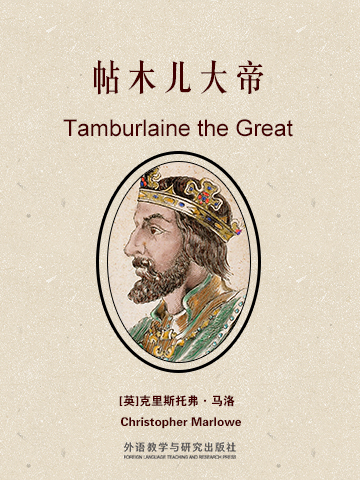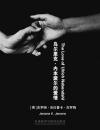The play is often linked to Renaissance humanism which idealises the potential of human beings. Tamburlaine's aspiration to immense power raises profound religious questions as he arrogates for himself a role as the "scourge of God" (an epithet originally applied to Attila the Hun). Some readers have linked this stance with the fact that Marlowe was accused of atheism. Others have been more concerned with a supposed anti-Muslim thread of the play, highlighted in a scene in which the main character burns the Qur'an.
马洛的第一个剧本就是他在剑桥读书时完成的《帖木儿大帝》(上卷与下卷1587-1588)。剧中讲述了14世纪一个普通牧民帖木儿,如何登上国王宝座,成为一个野心勃勃、残暴无情的鞑靼统治者的故事,是一部“巨星陨落”式的悲剧。骄横跋扈的蒙古大帝帖木儿利用波斯国王的弟弟推翻了波斯王,在登上王位后又杀害了波斯王的弟弟。然后帖木尔马不停蹄地战败了土耳其君主并将他关入囚笼示众。最后这个嗜血成性、权迷心窍的牧羊人竟然向上天的权威发动攻击,致使他所向披靡的铁骑陷入绝境,这个建立了庞大蒙古帝国的征服者只能孤零零地死在皇后的坟墓上。作者通过刻画一个百战百胜的枭雄,表达了文艺复兴时期人们渴望获得无穷无尽的力量和权势的心情。
Tamburlaine the Great is a play in two parts by Christopher Marlowe. It is loosely based on the life of the Central Asian emperor, Timur (Tamerlane/Timur the Lame, d. 1405). Written in 1587 or 1588, the play is a milestone in Elizabethan public drama; it marks a turning away from the clumsy language and loose plotting of the earlier Tudor dramatists, and a new interest in fresh and vivid language, memorable action, and intellectual complexity. Along with Thomas Kyd's The Spanish Tragedy, it may be considered the first popular success of London's public stage.
- Tamburlaine the Great
- TO THE GENTLEMEN-READERS AND OTHERS THAT TAKE PLEASURE
- THE PROLOGUE.
- DRAMATIS PERSONAE.
- ACT I. SCENE I.
- ACT I. SCENE II.
- ACT II. SCENE I.
- ACT II. SCENE II.
- ACT II. SCENE III.
- ACT II. SCENE IV.
- ACT II. SCENE V.
- ACT II. SCENE VI.
- ACT II. SCENE VII.
- ACT III. SCENE I.
- ACT III. SCENE II.
- ACT III. SCENE III.
- ACT IV. SCENE I.
- ACT IV. SCENE II.
- ACT IV. SCENE III.
- ACT IV. SCENE IV.
- ACT V. SCENE I.
- ACT VI. SCENE I.
- ACT VI. SCENE II.
- ACT VI. SCENE III.
- ACT VII. SCENE I.
- ACT VII. SCENE II.
- ACT VII. SCENE III.
- ACT VII. SCENE IV.
- ACT VIII. SCENE I.
- ACT VIII. SCENE II.
- ACT VIII. SCENE III.
- ACT VIII. SCENE IV.
- ACT VIII. SCENE V.
- ACT IX. SCENE I.
- ACT IX. SCENE II.
- ACT IX. SCENE III.
- ACT X. SCENE I.
- ACT X. SCENE II.
- ACT X. SCENE III.
- 书评 写书评
- 笔记
-
书评加载中...













 京公网安备 11010802032529号
京公网安备 11010802032529号
笔记加载中...